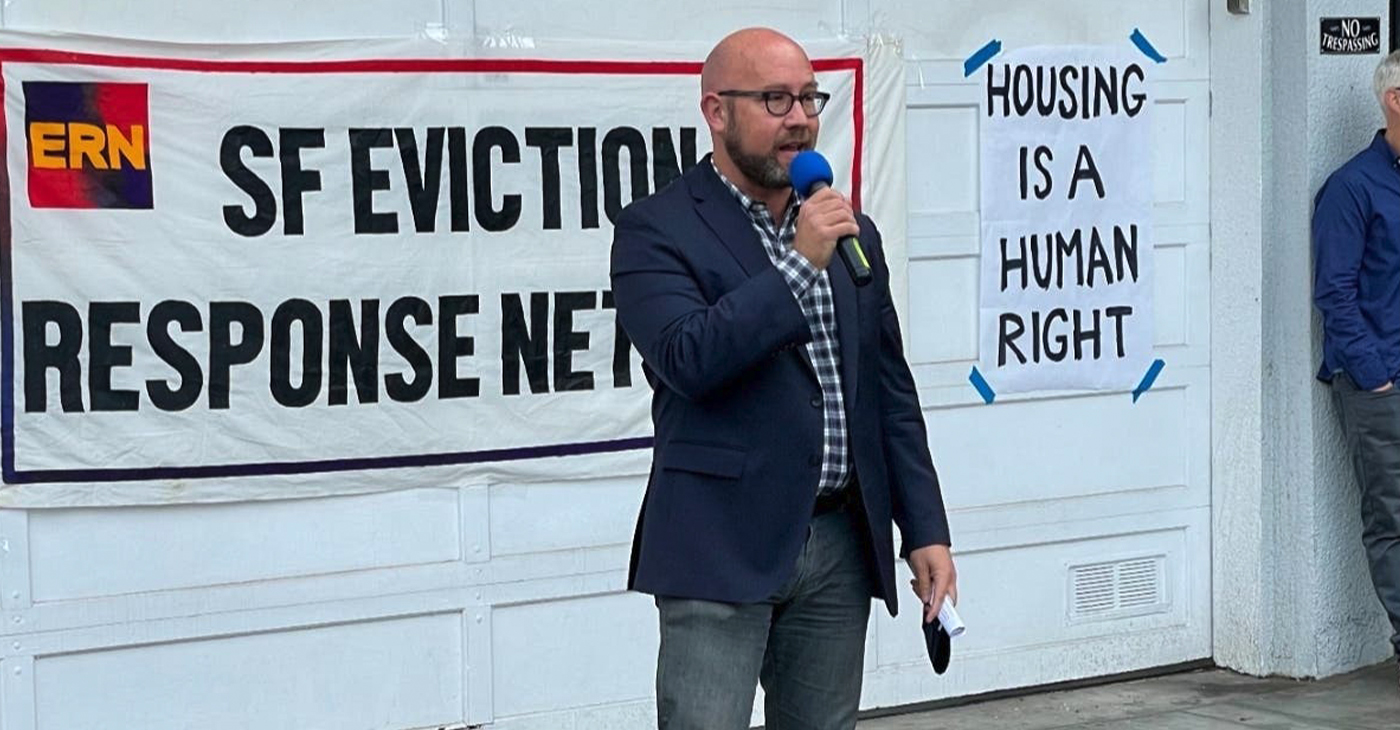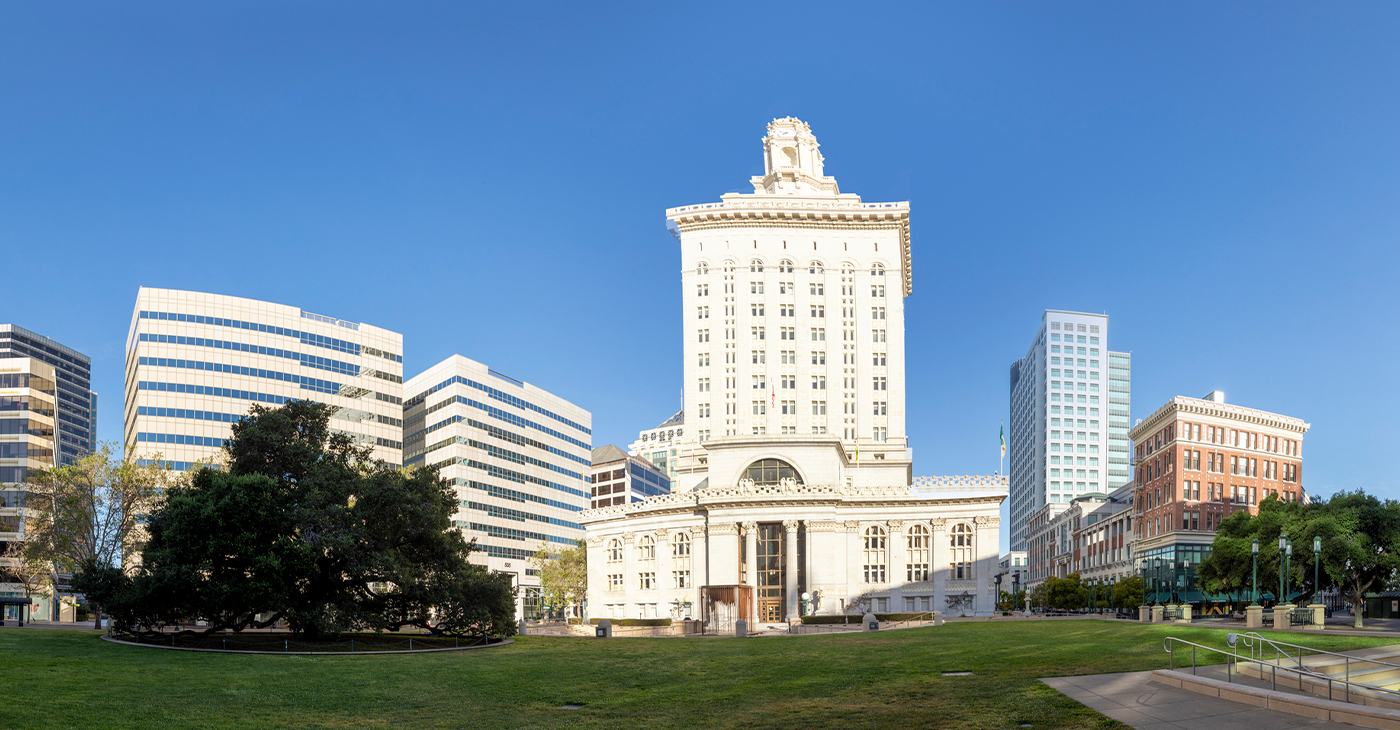Bay Area
Citizen Coalition Says City Can Save a Billion Dollars with Alternative Approach to Unsheltered Homelessness
The city is taking the wrong approach to getting unsheltered people off San Francisco streets, according to a citizen group that believes an alternative approach would shave $1 billion from the projected price tag. The group filed detailed comments Monday to a city report that said it would cost $1.45 billion and take three years to get all unsheltered people off of San Francisco’s streets.

By Joe Dworetzky
Bay City News
The city is taking the wrong approach to getting unsheltered people off San Francisco streets, according to a citizen group that believes an alternative approach would shave $1 billion from the projected price tag.
The group filed detailed comments Monday to a city report that said it would cost $1.45 billion and take three years to get all unsheltered people off of San Francisco’s streets.
Rescue SF, self-described as a “a citywide coalition of residents advocating for compassionate and effective solutions to homelessness in San Francisco,” suggested that leasing existing space instead of acquiring or building would reduce the city’s projected cost by a billion dollars and still get the same results.
The matter has its roots in SF Ordinance 92-22, passed in June of 2022, which declared that “It shall be the policy of the City to offer to every person experiencing homelessness in San Francisco a safe place to sleep.”
To get to that end, the ordinance directed the city’s Department of Homelessness and Supportive Housing to prepare a detailed plan to shelter every homeless person in the city within three years. The plan required HSH to detail how much it would cost to do so.
On Dec. 30, HSH submitted its “A Place for All Report,” concluding that it would cost $1.45 billion over the first three years and $410 million a year thereafter.
In view of its lofty price tag, District 8 Supervisor Rafael Mandelman tweeted, “It’s as if HSH is hoping to convince the city that ending unsheltered homelessness is impossible, so we shouldn’t bother trying.”
Rescue SF’s comments, co-authored by Mark Nagel and Lori Brooke, are entitled “More Beds For Your Buck: A Cost-Effective Approach to Ending Unsheltered Homelessness in San Francisco.”
While the comments do not criticize HSH, Rescue SF highlights the fact that HSH prioritized acquiring or building shelters and permanent housing rather than leasing apartments for housing and converting existing hotels into shelters.
Because of the challenges of acquiring, building and siting properties in San Francisco, HSH’s approach results in frontloading the expense (and difficulties) of reaching the goal of ending unsheltered homelessness in the city.
One graphic in the comments shows that the start-up costs for one unit of housing acquired by the city is $556,000, compared to $11,000 for a leased apartment unit.
The comments acknowledge the argument that owning is generally more advantageous than leasing, but counters, “While this is true in the long run, San Francisco’s urgent street crisis is forcing the City to focus on the short run… leasing can bring many more people into housing than newly constructed buildings…. New construction could take up to five or six years to complete, while a leased building could be operational within months.”
The comments also challenge the report’s reliance on HSH’s average historical costs of operating shelter beds. Relying on that experience, the report estimated annual operating costs of between $58,000 and $88,000 per bed.
The comments called out the recent master lease and conversion of a hotel at 711 Post St., where the per-bed annual operating costs are approximately $30,000. Replicating that approach would save hundreds of millions of dollars over the three-year period.
The comments acknowledge that their conclusion will depend on the city being able to find enough apartments for lease and enough hotels with owners willing to master lease and convert their rooms. “If the city fails to surmount these practical constraints, the number of units or the associated costs would change.”
Nagel, co-founder with Brooke of Rescue SF, said the organization was formed three years ago when “we saw that the city was in trouble, in a real crisis. And instead of pulling our hair and complaining, people said, well, what can we do about this? How can we help?”
Rescue SF prides itself on being nonpartisan and coming to the table not with general criticism but with specific suggestions that it has carefully researched. Nagel said, “We’re not ideological. We don’t have any preconceived notions of what the right answers are. We look at best practices, we talk to people, we learn, we’ll change our minds. We get new information.”
Nagel said that in preparing the report, “What the department did was they took all of their usual practices, business as usual, and said, let’s take these interventions and do that for all the people on the street…”
He said he would have preferred it if the report started with the question “given that we have limited financial resources, what combination of shelter and housing will accomplish our goal? Get everyone off the street with the limited resources that we have.”
Nagel says that the city can’t continue to just manage the problem using the same old approaches. He says, “let’s treat homelessness like a natural disaster, and act with an urgency to get people off the streets.”
A hearing on the report is scheduled before the supervisors at City Hall Tuesday at 3 p.m. in Room 250. Mandelman has scheduled a press conference on the same topic at 12:30 pm Tuesday on the City Hall steps (Polk Street side).
Activism
Oakland Post: Week of December 25 – 31, 2024
The printed Weekly Edition of the Oakland Post: Week of December 25 – 31, 2024

To enlarge your view of this issue, use the slider, magnifying glass icon or full page icon in the lower right corner of the browser window. ![]()
Bay Area
Glydways Breaking Ground on 14-Acre Demonstration Facility at Hilltop Mall
Glydways has been testing its technology at CCTA’s GoMentum Station in Concord for several years. The company plans to install an ambitious 28-mile Autonomous Transit Network in East Contra Costa County. The new Richmond facility will be strategically positioned near that project, according to Glydways.

The Richmond Standard
Glydways, developer of microtransit systems using autonomous, small-scale vehicles, is breaking ground on a 14-acre Development and Demonstration Facility at the former Hilltop Mall property in Richmond, the Contra Costa Transportation Authority (CCTA) reported on social media.
Glydways, which released a statement announcing the project Monday, is using the site while the mall property undergoes a larger redevelopment.
“In the interim, Glydways will use a portion of the property to showcase its technology and conduct safety and reliability testing,” the company said.
Glydways has been testing its technology at CCTA’s GoMentum Station in Concord for several years. The company plans to install an ambitious 28-mile Autonomous Transit Network in East Contra Costa County. The new Richmond facility will be strategically positioned near that project, according to Glydways.
The new Richmond development hub will include “over a mile of dedicated test track, enabling Glydways to refine its solutions in a controlled environment while simulating real-world conditions,” the company said.
Visitors to the facility will be able to experience on-demand travel, explore the control center and visit a showroom featuring virtual reality demonstrations of Glydways projects worldwide.
The hub will also house a 13,000-square-foot maintenance and storage facility to service the growing fleet of Glydcars.
“With this new facility [at the former Hilltop Mall property], we’re giving the public a glimpse of the future, where people can experience ultra-quiet, on-demand transit—just like hailing a rideshare, but with the reliability and affordability of public transit,” said Tim Haile, executive director of CCTA.
Janet Galvez, vice president and investment officer at Prologis, owner of the Hilltop Mall property, said her company is “thrilled” to provide space for Glydways and is continuing to work with the city on future redevelopment plans for the broader mall property.
Richmond City Manager Shasa Curl added that Glydways’ presence “will not only help test new transit solutions but also activate the former Mall site while preparation and finalization of the Hilltop Horizon Specific Plan is underway.
Alameda County
Last City Council Meeting of the Year Ends on Sour Note with Big Budget Cuts
In a five to one vote, with Councilmembers Carroll Fife and Janani Ramachandran excused, the council passed a plan aimed at balancing the $130 million deficit the city is facing. Noel Gallo voted against the plan, previously citing concerns over public safety cuts, while Nikki Fortunato-Bas, Treva Reid, Rebecca Kaplan, Kevin Jenkins, and Dan Kalb voted in agreement with the plan.

By Magaly Muñoz
In the last lengthy Tuesday meeting of the Oakland City Council for 2024, residents expressed strong opposition to the much needed budget cuts before a change in leadership was finalized with the certification of election results.
In a five to one vote, with Councilmembers Carroll Fife and Janani Ramachandran excused, the council passed a plan aimed at balancing the $130 million deficit the city is facing. Noel Gallo voted against the plan, previously citing concerns over public safety cuts, while Nikki Fortunato-Bas, Treva Reid, Rebecca Kaplan, Kevin Jenkins, and Dan Kalb voted in agreement with the plan.
Oakland police and fire departments, the ambassador program, and city arts and culture will all see significant cuts over the course of two phases.
Phase 1 will eliminate two police academies, brown out two fire stations, eliminate the ambassador program, and reduce police overtime by nearly $25 million. These, with several other cuts across departments, aim to save the city $60 million. In addition, the council simultaneously approved to transfer restricted funds into its general purpose fund, amounting to over $40 million.
Phase 2 includes additional fire station brownouts and the elimination of 91 jobs, aiming to recover almost $16 million in order to balance the rest of the budget.
Several organizations and residents spoke out at the meeting in hopes of swaying the council to not make cuts to their programs.
East Oakland Senior Center volunteers and members, and homeless advocates, filled the plaza just outside of City Hall with rallies to show their disapproval of the new budget plan. Senior residents told the council to “remember that you’ll get old too” and that disturbing their resources will only bring problems for an already struggling community.
While city staff announced that there would not be complete cuts to senior center facilities, there would be significant reductions to staff and possibly inter-program services down the line.
Exiting council member and interim mayor Bas told the public that she is still hopeful that the one-time $125 million Coliseum sale deal will proceed in the near future so that the city would not have to continue with drastic cuts. The deal was intended to save the city for fiscal year 2024-25, but a hold up at the county level has paused any progress and therefore millions of dollars in funds Oakland desperately needs.
The Coliseum sale has been a contentious one. Residents and city leaders were originally against using the deal as a way to balance the budget, citing doubts about the sellers, the African American Sports and Entertainment Group’s (AASEG), ability to complete the deal. Council members Reid, Ramachandran, and Gallo have called several emergency meetings to understand where the first installments of the sale are, with little to no answers.
Bas added that as the new Alameda County Supervisor for D5, a position she starts in a few weeks, she will do everything in her power to push the Coliseum sale along.
The city is also considering a sales tax measure to put on the special election ballot on April 15, 2025, which will also serve as an election to fill the now vacant D2 and mayor positions. The tax increase would raise approximately $29 million annually for Oakland, allowing the city to gain much-needed revenue for the next two-year budget.
The council will discuss the possible sales tax measure on January 9.
-

 Activism4 weeks ago
Activism4 weeks agoOakland Post: Week of November 27 – December 3, 2024
-

 Activism2 weeks ago
Activism2 weeks agoButler, Lee Celebrate Passage of Bill to Honor Congresswoman Shirley Chisholm with Congressional Gold Medal
-

 Activism2 weeks ago
Activism2 weeks agoPost News Group to Host Second Town Hall on Racism, Hate Crimes
-

 Activism2 weeks ago
Activism2 weeks agoDelta Sigma Theta Alumnae Chapters Host World AIDS Day Event
-

 Business2 weeks ago
Business2 weeks agoLandlords Are Using AI to Raise Rents — And California Cities Are Leading the Pushback
-

 Activism3 weeks ago
Activism3 weeks agoOakland Post: Week of December 4 – 10, 2024
-

 Activism2 weeks ago
Activism2 weeks agoOakland Post: Week of December 11 – 17, 2024
-

 Arts and Culture1 week ago
Arts and Culture1 week agoPromise Marks Performs Songs of Etta James in One-Woman Show, “A Sunday Kind of Love” at the Black Repertory Theater in Berkeley




























































